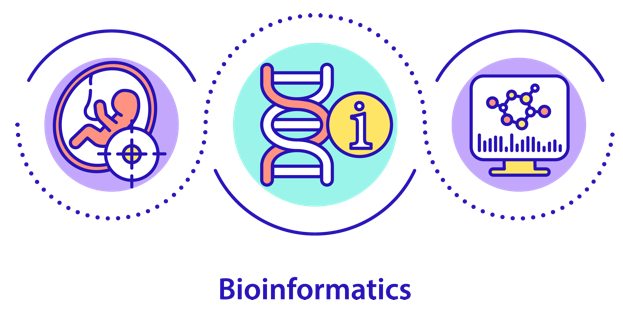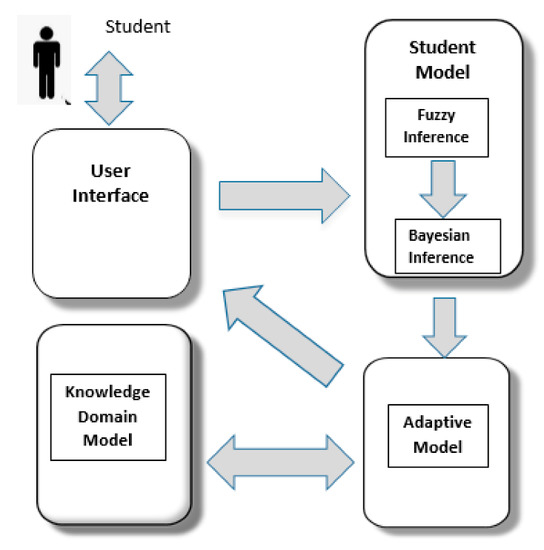Bioinformatics Tutor - Questions
Bioinformatics Tutor - Questions
Blog Article
Get This Report on Bioinformatics Tutor
Table of ContentsGetting The Bioinformatics Tutor To WorkAn Unbiased View of Bioinformatics TutorThe Basic Principles Of Bioinformatics Tutor Getting The Bioinformatics Tutor To WorkWhat Does Bioinformatics Tutor Do?
Preliminary job advancement is fairly taxing, as it involves cautious planning of the subject, structuring of deliverables, and factor to consider of the abilities and experience levels of individuals. However, when a project has actually been clearly specified and carried out, it has the potential to be reused in future sessions with only small modifications to show updates in the field or fit differences in individual backgrounds. This makes project-based learning a effective and lasting teaching approach over time, specifically in swiftly advancing disciplines like bioinformatics.To make sure connection and reproducibility of discovering, offering common laboratory notebooks-- either physical or digital-- is critical. These notebooks work as collaborative logs where students can videotape their progression, code, approaches, and results throughout the course. Not just do they strengthen discovering by urging paperwork and representation, however they likewise serve as post-course reference products that participants can get in touch with in future research study or scholastic projects.
Advisors play a necessary duty in the success of project-based courses. Coaches also act as role designs and influence trainees to proceed seeking careers in computational biology and relevant fields.
Get This Report about Bioinformatics Tutor
Another key element of the discovering process is offering individuals the opportunity to provide their work to others, specifically to an audience beyond their prompt job team. Last discussions or mini-conferences permit trainees to express their findings, obtain positive feedback, and gain self-confidence in connecting scientific web content. This presentation part is frequently a preferred amongst pupils, as it confirms their efforts and highlights the real-world importance of their work.
The performance of this technique was evidenced by the extremely favorable feedback received after the initial training course was used. The success motivated repeat offerings of the same program format in 2015 and 2016. Each version of the program was fine-tuned based upon participant responses and advancing finest methods in pedagogy. These adaptations made sure that the core objectives-- hands-on discovering, partnership, and used analytical-- continued to be undamaged while broadening the deepness and breadth of topics covered.
A remarkable visualization that captured participant sentiment was a word cloud created from responses to the 2014 end-of-course study. This aesthetic responses reinforced the program's emphasis on experiential knowing and advisor support.
The payments of individuals such as Rustici, G., Orchard, S., Cowley, A., and Twells, R., along with various other participants of the EBI user-training-working team, contributed in refining the program framework and content. Their understandings assisted form a adaptable and inclusive design that could be adapted to numerous institutional and local contexts.
An Unbiased View of Bioinformatics Tutor

Jones, Rasmussen, and Moffitt (1997) additionally supported for interdisciplinary learning with collaborative task job, noting its capability to simulate expert environments and prepare trainees for future academic or industry duties. In a comprehensive testimonial, Thomas (2000) analyzed multiple researches on PBL and ended that students not just execute well academically but likewise create a much deeper understanding of the subject matter and improved team effort skills.
In the context of bioinformatics education and learning, ingenious techniques like class games and simulation-based training have likewise been used. Schneider and Jimenez (2013) presented the visit the website use of interactive games to teach organic information integration, making it possible for pupils to comprehend intricate concepts with experiential learning. This type of gamification matches the hands-on knowing stressed in project-based courses by presenting an aspect of enjoyable and competitors, which can even more enhance interaction.
Going back to the training course talked about below, the lessons gained from the execution of project-based understanding in a bioinformatics establishing have broader ramifications for various other STEM areas. The approach highlights link not simply technical proficiency, however additionally interaction, collaboration, and vital reasoning-- skills that are significantly valued in both academia and industry.
Everything about Bioinformatics Tutor
The scalability of the training course layout also makes it a practical design for various other establishments. With appropriate modification based on local demands, offered resources, and participant accounts, the structure can be replicated or adapted for use in various other scientific domain names. Additionally, the addition of structured mentorship and assessment techniques helps make sure regular top quality and measurable learning outcomes.

To conclude, project-based knowing in bioinformatics offers a powerful method to mentor facility, interdisciplinary material in such a way that is both obtainable and intellectually promoting. By emphasizing partnership, useful application, and essential questions, such initiatives not just boost specific knowing however also add to the farming of a new generation of experienced and ingenious scientists.
The 5-Second Trick For Bioinformatics Tutor

An additional secret element of the discovering procedure is offering individuals the chance to offer their job to others, particularly to a target market beyond their prompt project team.In the more comprehensive instructional literary works, project-based knowing (PBL) has actually been extensively studied and validated as an efficient approach for advertising deep understanding, essential reasoning, and transferable abilities. Adderley et al. (1975) emphasized the value of project approaches in greater education and learning, keeping in mind that they advertise active knowing and autonomy. Schneider and Jimenez (2013) introduced the use of interactive video games to teach organic information assimilation, enabling trainees go to my site to comprehend complicated concepts through experiential knowing.
Report this page